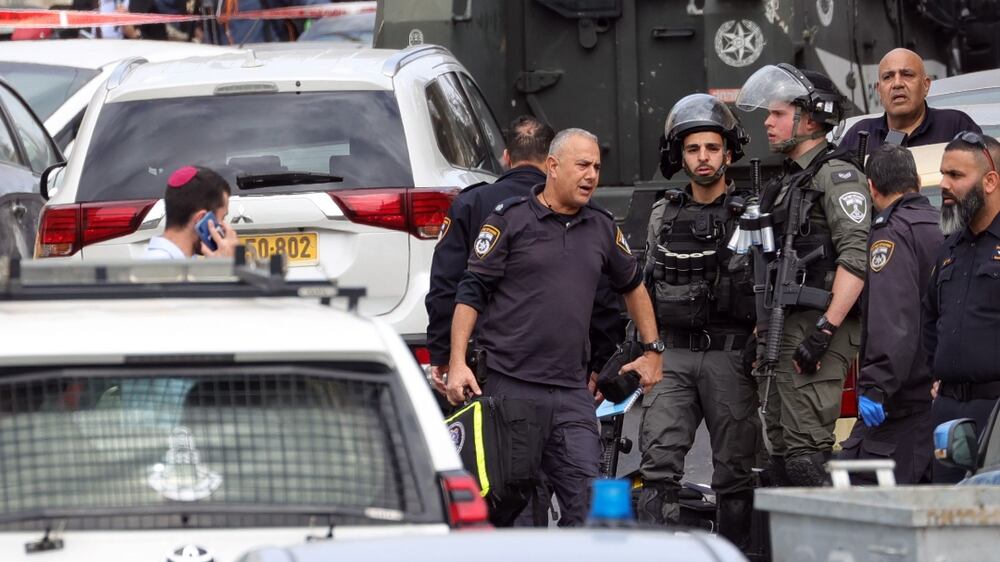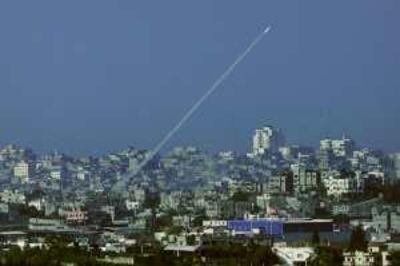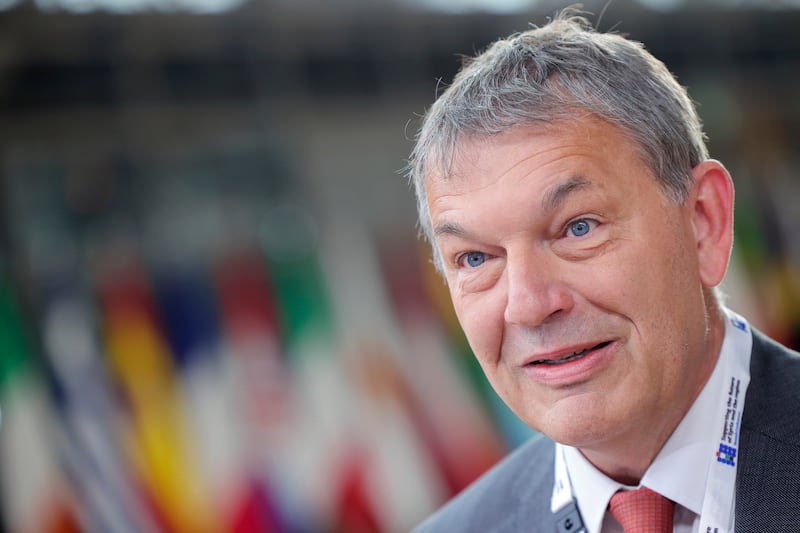When Swiss economist Philippe Lazzarini was starting his UN career in the mid 2000s, there was enough optimism in international aid circles about Gaza for some to think it could become another Hong Kong.
Conditions have since deteriorated under a 16-year blockade that is a major factor in pushing most of the two million people in Gaza into depending on UN food aid and other assistance.
The aid is delivered mostly by the agency headed by Mr Lazzarini, the United Nations Relief and Works Agency for Palestine Refugees in the Near East (UNRWA).
"Gaza has taken the exact opposite trajectory," Mr Lazzarini said.
"Instead of a prosperous, dynamic area it has become a kind of an artificially-created humanitarian welfare economy and community."
The Israeli withdrawal from Gaza in 2005 was followed by legislative elections, in which President Mahmoud Abbas's Fatah faction and other secular rivals of the militant group Hamas failed to coalesce.
Their ineptitude helped to hand Hamas, which is supported by Iran, victory in the poll.
A Palestinian civil war followed and by 2007 the group took over Gaza, deepening a blockade on the territory by Israel, as well as border closures by Egypt.
Several wars took place between Hamas and Israel. Most of those killed were Palestinian civilians.
Over the past week, increasing levels of violence, which culminated in the killing of seven Israeli civilians near Jerusalem, threatened another war in Palestine, with Gaza as its theatre.
Palestinian boy, 13, shoots two in East Jerusalem

But US diplomatic intervention appears to have prevented a new conflict.
If another war erupts, UNRWA would go into emergency mode, Mr Lazzarini said, to ensure that humanitarian assistance reaches trapped people.
The organisation negotiated with Israel in previous wars for the evacuation of non-combatants and reuniting Palestinian children who became separated from their families.
“We keep hearing when will be the next cycle of violence, when is the next relapse?” Mr Lazzarini said.
But, as with the violence, long-term social and economic stagnation in Gaza is outside UNRWA's control.
It will keep grinding away at the future of the young Palestinians of Gaza no matter how much UNRWA gives out food, how well it operates schools and clinics, or collects rubbish from the camps, Mr Lazzarini said.
"You cannot promote an economy in an environment where the movement of people, goods, trade and financial transactions are restricted," he said, calling for the implementation of a 14-year-old UN resolution to ease the blockade.
The Security Council passed the resolution, number 1860, during a war between Hamas and Israel at the beginning of 2009.

The resolution called for a ceasefire and a "sustained and regular flow of goods and people" in and out of Gaza. It recognised UNRWA as having a vital role in "providing humanitarian and economic assistance".
Since 2015, more than $5.7 billion of international aid money has been spent on Gaza, according to the British charity Oxfam. It forecast that of the 800,000 young Palestinians who cannot leave Gaza, 63 per cent will grow up jobless.
"We have been dealing with Gaza in the same way for the past 15 years. The situation is not getting any better," said Mr Lazzarini, who worked as head of marketing at Union Bancaire Privee, in Geneva.
He says UNRWA has invested in the provision of vocational training and support for some young entrepreneurs in the digital and solar energy fields, on top of regular education.
But these were "individual successes".
Allowing Gaza's inhabitants to travel, trade and have access to international markets and the financial system is a "minimum prerequisite to put in place a type of a socio-economic environment", he said.
"This is without talking about a lasting political solution, but at least it would be a step toward a [better] situation," he said.
The US was instrumental in the establishment of UNRWA in 1949, and is the agency's main donor. One UN official privately called the American contribution "guilt money" for US support for the 1948 creation of Israel.
The agency has headquarters in Amman and Gaza. It also works in the West Bank, Lebanon and Syria.
Mr Lazzarini was appointed head in 2020 after a UN ethics division alleged that senior members of UNRWA management committed acts of sexual misconduct, nepotism and bullying.
Before moving to Jordan, Mr Lazzarini was deputy UN Special Co-ordinator for Lebanon, as the country's financial meltdown accelerated. He studied in Neuchâtel and Lausanne, Switzerland, the same country where the late Palestinian banker Youssef Beidas, arguably the biggest Middle East financial brain in the modern era, died in exile in 1968.
Beidas was a refugee in Lebanon, where he set up a money exchange company and later built a financial and business empire. He believed that economic expansion was key to a Palestinian rebirth.
Although Beidas's empire collapsed in 1966 after Lebanese politicians turned against him, he owed his rise to Lebanon's openness and position as an entrepot.
In Gaza, a modern-day Beidas would have little chance of doing so again.







